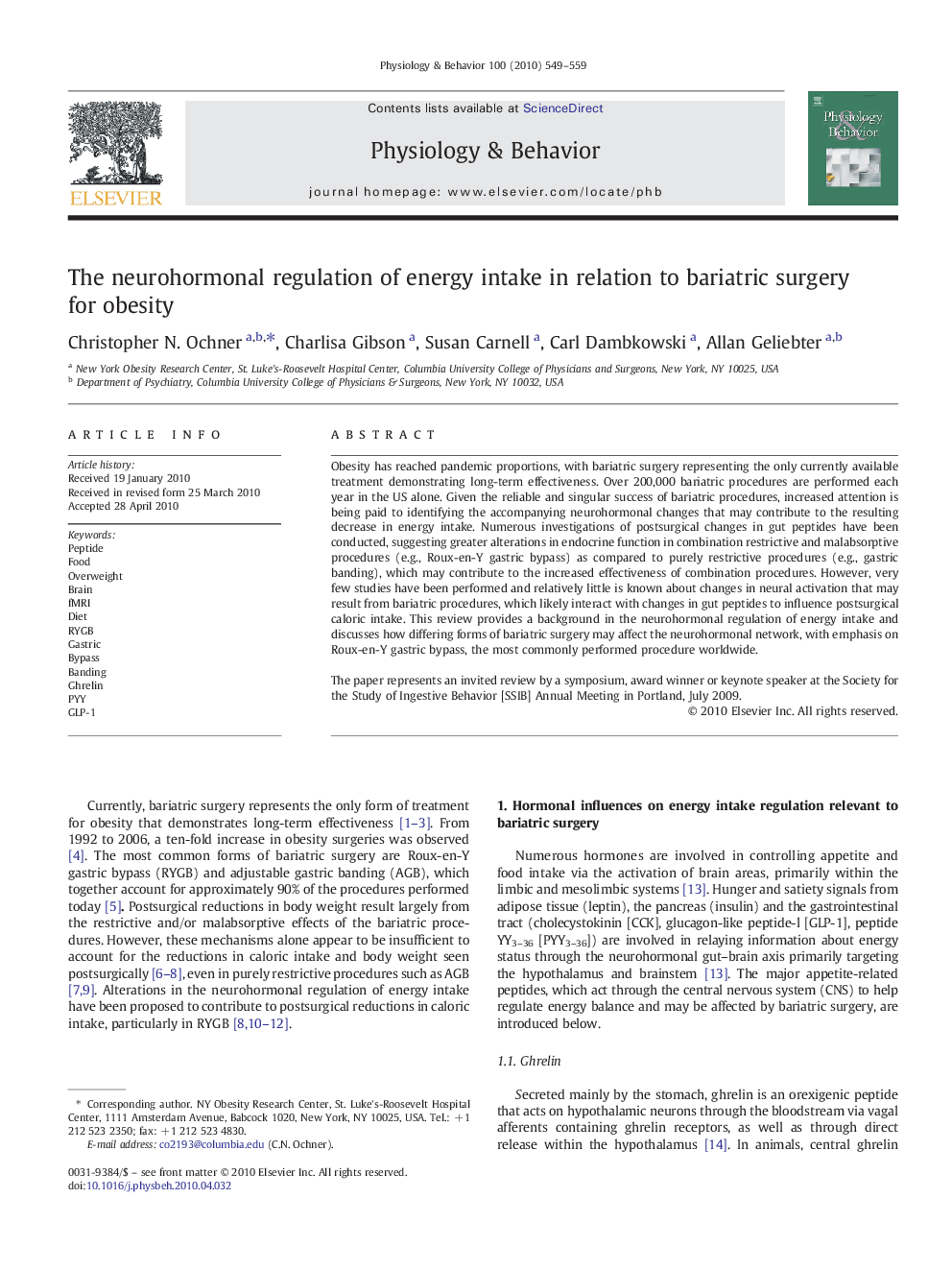| Article ID | Journal | Published Year | Pages | File Type |
|---|---|---|---|---|
| 2844735 | Physiology & Behavior | 2010 | 11 Pages |
Obesity has reached pandemic proportions, with bariatric surgery representing the only currently available treatment demonstrating long-term effectiveness. Over 200,000 bariatric procedures are performed each year in the US alone. Given the reliable and singular success of bariatric procedures, increased attention is being paid to identifying the accompanying neurohormonal changes that may contribute to the resulting decrease in energy intake. Numerous investigations of postsurgical changes in gut peptides have been conducted, suggesting greater alterations in endocrine function in combination restrictive and malabsorptive procedures (e.g., Roux-en-Y gastric bypass) as compared to purely restrictive procedures (e.g., gastric banding), which may contribute to the increased effectiveness of combination procedures. However, very few studies have been performed and relatively little is known about changes in neural activation that may result from bariatric procedures, which likely interact with changes in gut peptides to influence postsurgical caloric intake. This review provides a background in the neurohormonal regulation of energy intake and discusses how differing forms of bariatric surgery may affect the neurohormonal network, with emphasis on Roux-en-Y gastric bypass, the most commonly performed procedure worldwide.The paper represents an invited review by a symposium, award winner or keynote speaker at the Society for the Study of Ingestive Behavior [SSIB] Annual Meeting in Portland, July 2009.
